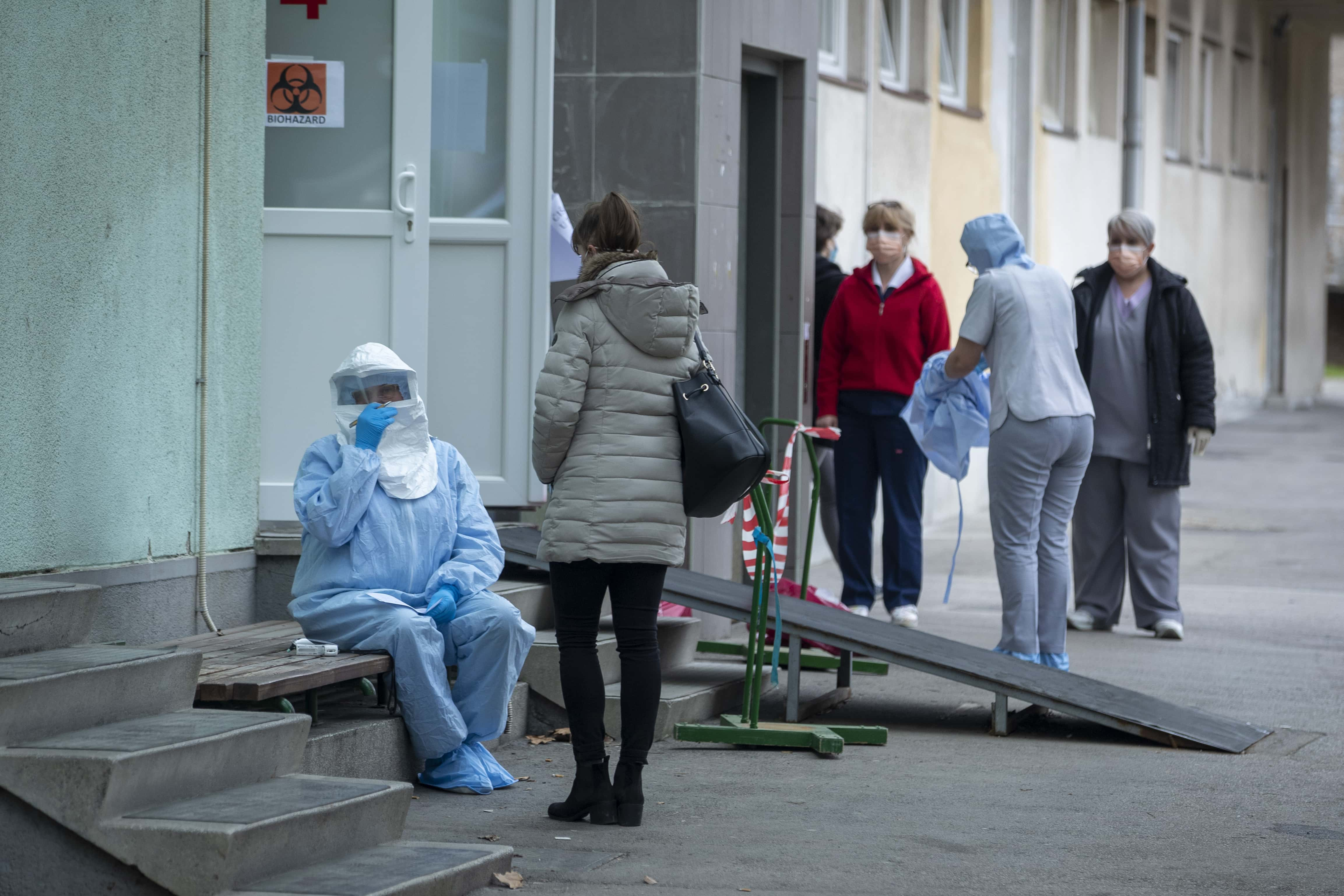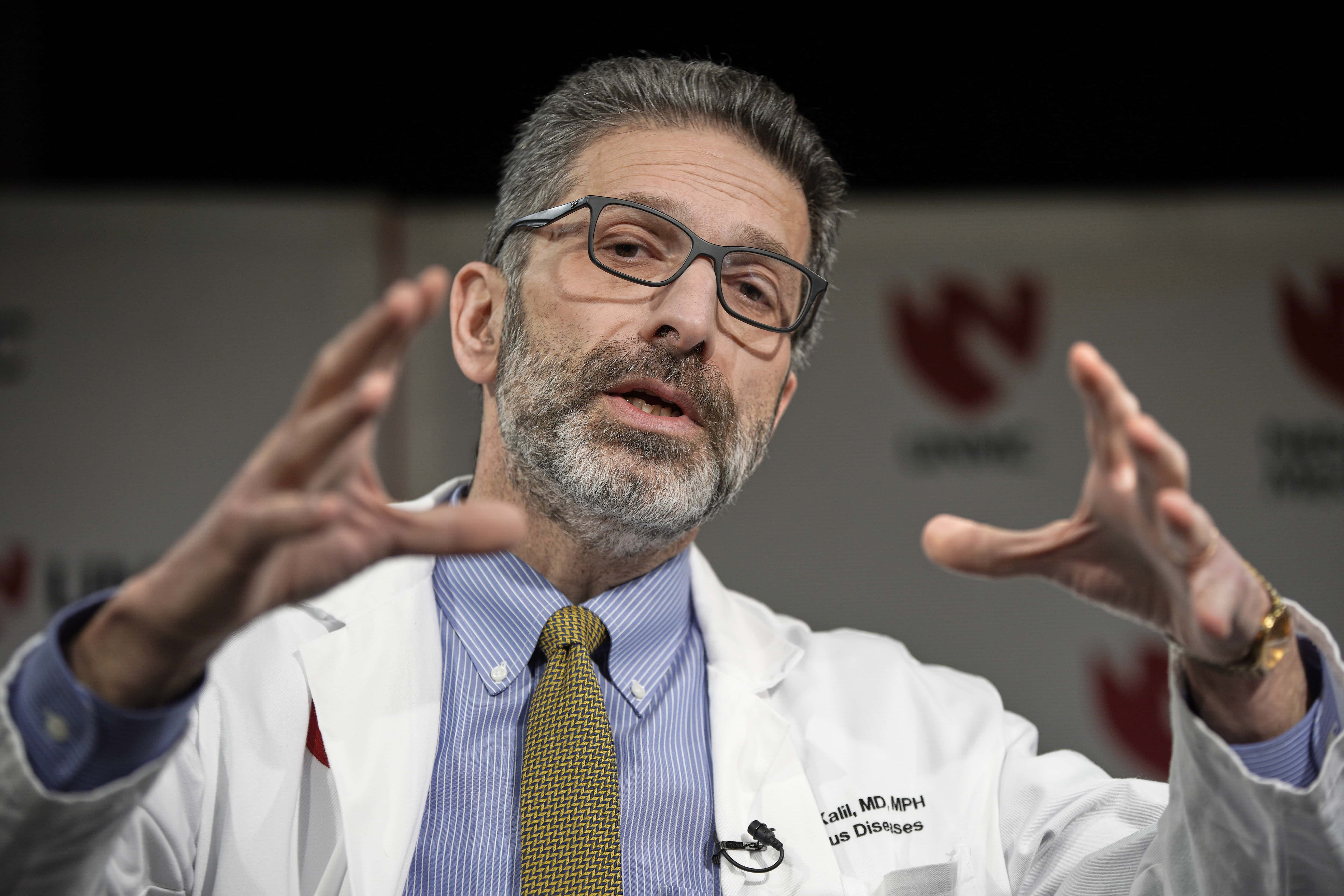Coronavirus: Nebraska medical center on the frontline as it treats evacuees from Diamond Princess

In 2014, a highly secure and specialized medical center in Nebraska was tasked with an important mission: to fight the Ebola virus that arrived in the US that year. After successfully treating three people then, the center is in the news again. This time, to treat COVID-19, a new coronavirus disease that has sickened 53 Americans.
The University of Nebraska Medical Center has been roped in to carry out a large study, which could have implications for the fate of the outbreak. They will be testing an unapproved antiviral drug named remdesivir after China showed initial positive results.
“We urgently need a safe and effective treatment for COVID-19. Although remdesivir has been administered to some patients with COVID-19, we do not have solid data to indicate it can improve clinical outcomes,” NIAID Director and US Coronavirus Task Force member Anthony S Fauci, MD, said in a press statement.
The new human trials, he added, will provide concrete evidence on the efficacy of remdesivir.
While reports suggest that the coronavirus outbreak has been slowing down in China, the virus is getting stronger in other parts of the world, setting off outbreaks in Iran, Italy, and South Korea. Many European and Middle-Eastern countries have recorded their first cases in the last week.
Globally, the virus has infected more than 80,000 people and killed over 2,700 people.

The history behind the University of Nebraska Medical Center
Following the 9/11 attack, the US Centers for Disease Control and Prevention (CDC) set up a biocontainment center at the University of Nebraska Medical Center. The Center, commissioned in 2005, was tasked to handle cases of bioterrorism and dangerous infectious diseases.
"Our medical center has one of four highly specialized and secure biocontainment units in the US. It was built ten years ago to contain and treat patients with infectious diseases," the University of Nebraska Medical Center stated on its website.
An empty wing of the hospital was transformed into a 10-bed biocontainment unit, costing them $1 million. The wards come equipped with special air filters to ensure that micro-organisms do not spread beyond the patient rooms.
The staff goes through training several times a year. The entire unit, according to them, is isolated from the rest of the hospital.
The unit, however, remained idle until 2014, when Ebola hit the country. Here, doctors treated Americans who returned from West Africa -- the epicenter of the outbreak.
When that threat subsided, the unit returned to being a quiet ward used only for training and planning. “We do a huge amount of research in these areas,” Dr Jeffrey P. Gold, chancellor of the University of Nebraska Medical Center, citing work on infectious diseases and research on countermeasures to weapons of mass destruction, told the New York Times.
What is the University of Nebraska Medical Center doing now?
The center is currently monitoring 14 Americans evacuated from the Diamond Princess cruise ship. While 12 people have tested positive for COVID-19, the other two tested negative.
To prevent the virus from spreading, each patient is isolated in a separate room. Patients are allowed to telecommunicate with their friends and family, the Center said in their press statement.
Now, patients at the center will participate in a clinical trial. One patient has already volunteered and has been receiving an experimental drug named remdesivir. Patients who are hospitalized with the COVID-19, the disease caused by the virus, will be eligible to join the trial if they have at least moderate symptoms, according to Dr Andre Kalil, of the University of Nebraska Medical Center, who is overseeing the trial.
The trial is expected to include 400 patients at 50 locations around the world, officials said on February 26. While half of these patients will receive the drug, the other half will be placed on placebo.

What is remdesivir and why is it being studied?
Remdesivir was intended to treat Ebola. This unapproved drug has worked against related viruses, MERS and SARS but only in tests conducted in labs and on animals.
The drug has been used on a US coronavirus patient before. But experts stressed that an elaborate human trial could provide answers to whether the drug was safe and effective.
Gilead has teamed up with the Chinese health authorities to conduct human trials in Wuhan and the initial results seem promising. "There is only one drug right now that we think may have real efficacy and that's remdesivir," Bruce Aylward, of the WHO, said at a press conference in Beijing.
A vaccine in the pipeline?
A US biotech company has developed a vaccine against COVID-19 and if it all goes well, the company will start the initial trails in April. The company named Moderna has already sent the potential coronavirus vaccine to a US government health agency: National Institute of Allergy and Infectious Diseases (NIAID).
According to the Wall Street Journal (WSJ), the NIAID is expected to test the experimental vaccine on 20 to 25 healthy volunteers by the end of April. The team will evaluate the vaccine's safety and efficacy against the infection.
"Going into a Phase One trial within three months of getting the sequence is unquestionably the world indoor record. Nothing has ever gone that fast," said Dr Anthony Fauci, director of NIAID, according to the WSJ.
Even if the vaccine turns out to be safe and effective, it could take a year before it reaches the market, say experts.